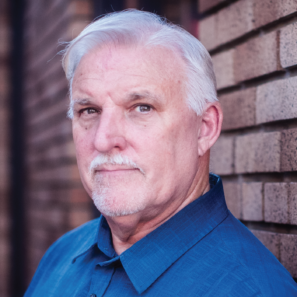By Joe Dallas
Originally posted on joedallas.com on December 15, 2016.
“The smart way to keep people passive and obedient is to strictly limit the spectrum of acceptable opinion, but allow very lively debate within that spectrum….” ― Noam Chomsky
The Christian Church by its nature should be both countercultural and culturally engaged.
Counter cultural, because we’re not of this world (John 17:6) owing our allegiance to another kingdom where we hold literal and eternal citizenship. ( Philippians 3:20) So our system of thought and behavior (hopefully) doesn’t jive with the system we’re surrounded by, since it’s largely flowing the direction its sovereigns want it to (Ephesians 2:2) but which our Sovereign forbids (I Peter 1:16) That makes us rebels who don’t want trouble but who are simply saying, “We can’t flow where
you’re flowing.”
Yet culturally engaged, because the title “Salt and Light” ( Matthew 5:13-16) is also a job description. As salt we try to preserve what is good; as light we hope to illuminate. The results are in God’s hands; the commission has been placed in
ours, regardless.
Part of that commission is the Great One to preach the gospel, and part of it is to make disciples. That means at times explaining salvation to non-believers; at other times, building up fellow believers.
But there’s also a place for reasoning with people, talking to the unsaved not just about the Gospel, but about gospel principles and their relevance to everyday life. That means laboring in conversations with them to clarify a Christian world view, challenging wrong beliefs, defending right ones, and engaging their minds to consider alternative moral and social positions.
So Paul the Apostle reasoned with people (Act 17:2, 18:4, 19:8) and employed reasoning while testifying before Felix about righteousness, temperance, and eternal judgment. (Acts 24:25)
This is the work of an apologist, a title I hope we don’t shy away from. Few of us are full time evangelists, yet all of us can evangelize. Likewise, few of us are “professional” apologists, yet all of us can think, study, analyze, and speak, making us “lay apologists” who can reason with people.
Today’s lay apologist faces three concepts being drilled into American minds via media, entertainment, and education at all levels; concepts that discredit us, fuel division, and solidify serious errors. Try having an intelligent conversation about abortion, the definition of marriage, racism, gender, or social justice, and it’s a safe bet you’ll encounter one or all of these.
- “Beliefs are Bigotry, So Believing is Dismissed”
Because at different times in history some Christians cloaked their bigotry in Biblical terms, some modern voices paint us with the Broad Bigot Brush. “Christians supported slavery and quoted the Bible to justify it”, they say, “so that’s what you’re doing today when you say you’re against abortion, same-sex marriage, or feminism, for Biblical reasons. You’re a bigot hiding behind religion.”
That’s the sort of reasoning displayed by a kid whose mother tells him to make his bed, and in response says, “Joan Crawford made her daughter make her bed, too, and she was mean, so mothers are mean, which makes you mean, which means I shouldn’t bother listening to a mean person.”
I find that asking a few questions can be helpful when I’m hearing that sort of argument:
- “Do you believe that anything is wrong?”
- “If you do, then are you bigoted towards the people who you think are wrong?”
- “If you reserve the right to believe some things are wrong without being accused of bigotry, why will you not extend that same right to me?”
Admitting that some Christians have been prejudiced is important. First, it’s true. Second, it raises a question of fairness: if some Christians have been wrong, is it fair to therefore conclude that all Christians are wrong? Because if it is, then any group whose members have ever been wrong must be discredited. Which would inevitably mean all groups must be discredited.
- “Bigots Never Get It, So Reason isn’t Called For”
It’s intellectually dishonest to retreat to generalizations in order to avoid discussing an issue, but that doesn’t stop plenty of people from doing so. Listen to interviews on news programs today and at some point you’ll hear, “You don’t get it because you’re (white) (male) (heterosexual) which also means you’re privileged, which therefore means you’re bigoted, which also means there’s no point trying to reason with you.”
Which is why the irritating response “Just stop” is often given when someone tries pointing out the unreasonableness of this approach. It’s a way of saying, “Since you hold the wrong views, you’re also the wrong type of person, who shouldn’t be
taken seriously.”
Considering all that, I’m inclined to ask:
- “Do we have to experience exactly what another person has experienced in order to believe that person is right or wrong?”
- “Is it accurate or fair to presume we are bigoted against those whose experiences we don’t share?”
- “Exactly who decided and proved that racism is a sin only committed by Caucasians, or that sexism is a sin only committed by males, or that homophobia is a sin only committed by heterosexuals, or that these kind of sins cannot work both ways?”
Of course, it’s arrogant and cruelly insensitive to dismiss the experiences of someone who’s had difficulties you haven’t. So if I’m against abortion, which I unapologetically am, that doesn’t mean I can’t feel compassion for a woman in a crisis pregnancy. Nor should I be so cavalier about her plight as to say, “I know what you’re going through”, because I don’t, nor would I say “I don’t care what you’re going through”, because I do.
But neither my concern for her nor my inability to know her experience first hand will negate the evil of killing an innocent unborn. I can appreciate her difficulty; I can stand for the right of the child to live despite her difficulty. The one doesn’t cancel out the other.
- “Bigotry’s Destructive, So Rules Don’t Apply”
I was watching the Spielberg film Amistad a few days ago, which dramatized an uprising on a slave cargo ship leading to the deaths of several crew members. Having seen these sailors raping, torturing, and murdering African women, men, and children, I felt nothing for them when the tables turned and the slaves killed them off. These men had behaved like monsters; I didn’t care who did what to them. (Not a Christ-like attitude, I know, but there it was.)
Then it struck me: Plenty of people today think those holding the “wrong” social views are just as hateful, violent or inciting of violence, even monstrous. By making just a few mental leaps – “You’re beliefs are bigoted; bigots cause harm; so when opposing bigots like you, the normal rules of civility don’t apply” – they feel justified “killing us off”, so to speak.
Up to a point, I get it. I’d have hardly expected those brutalized slaves on the Amistad to tell their tormentors, “Gee, let’s sit down and discuss our differing views as to how people should treat each other, then see what compromise we can reach.” Evil can’t be reasoned with; only resisted. And plenty of people have slapped the “Evil” label on plenty of other people.
We’ve seen dark, ugly expressions of this sort of thinking these post-election weeks, as people have vandalized property, attacked fellow citizens, and thrown the lowest kinds of remarks at people whose political or social views clashed with their own.
It’s as though we’re saying, “If you’re on the wrong side of certain issues, then you’re so despicable that you’re not entitled to freedom of speech or thought, and normal rules of conduct don’t apply to the rest of us when we oppose you.”
Which raises obvious but often overlooked questions:
- Has it really been proven that my views are bigoted, meaning that I consider myself and those like me to be literally better than, and above, others? If so, what is that proof, and where can it be found?
- If you cannot prove that my beliefs constitute bigotry, by what right do you abandon all rules of civility when you express your disagreement with me?
- If you’re secure in your ideas, then aren’t you able to defend them when they’re challenged, rather than try to shut down (or shout down) the challenger?
When people keep redefining terms without explanation, or accusing without evidence, or bullying without remorse, it’s easy to withdraw.
It’s also a mistake. I believe our ability to reason with people is God-given and, like all God-given capacities, it’s meant to be used. My hope, then, is that the difficulty of representing a Biblical world view will prod us not to hide, but instead to sharpen our skills and engage.
While it’s still light, and while engagement is both called for, and possible.



Comments
Add Comment